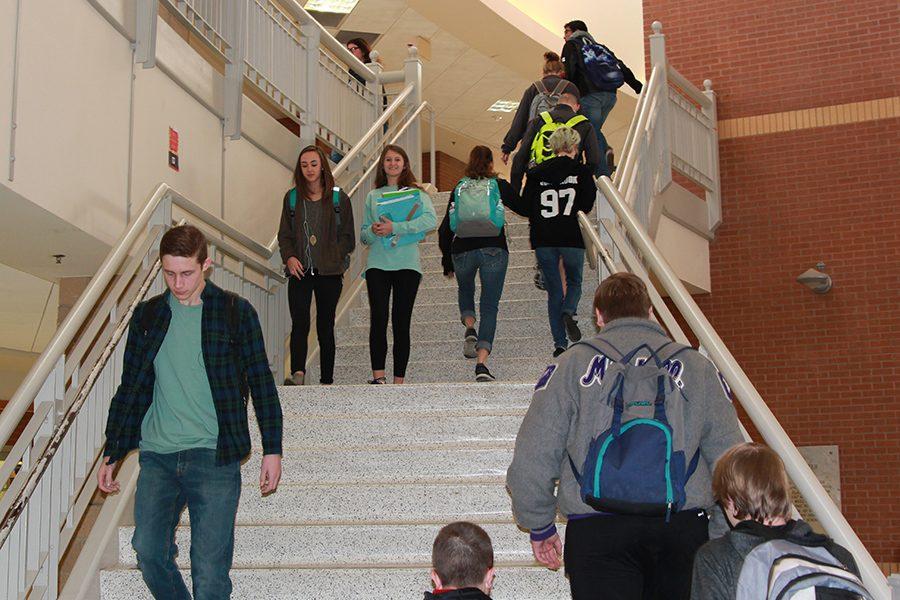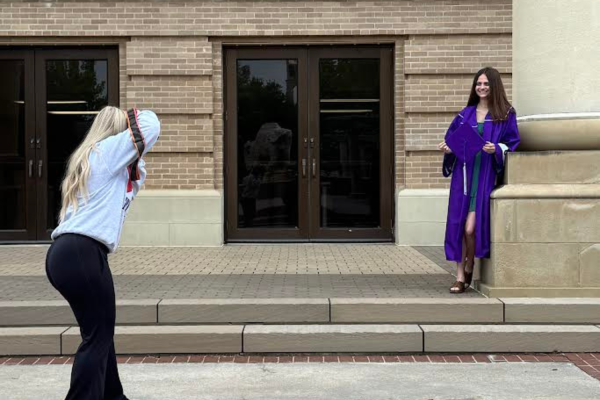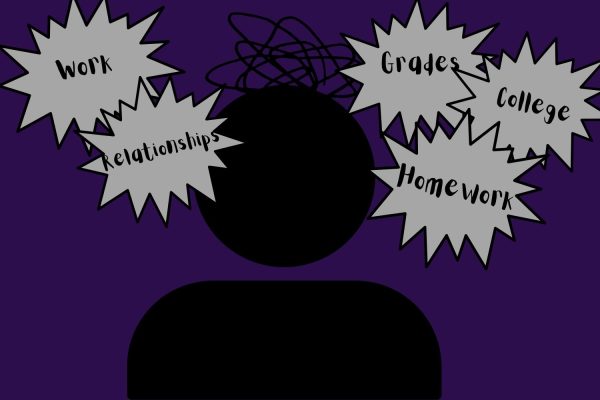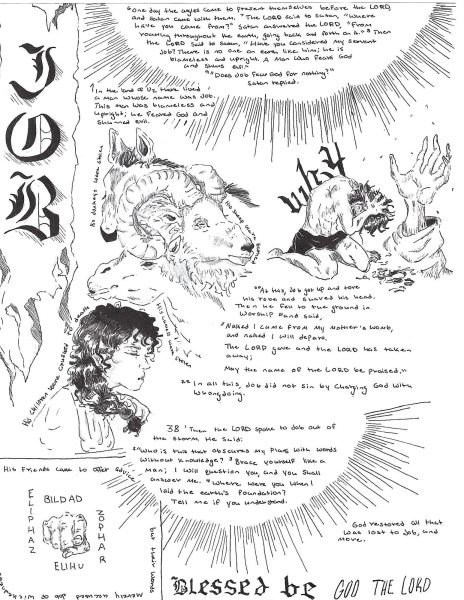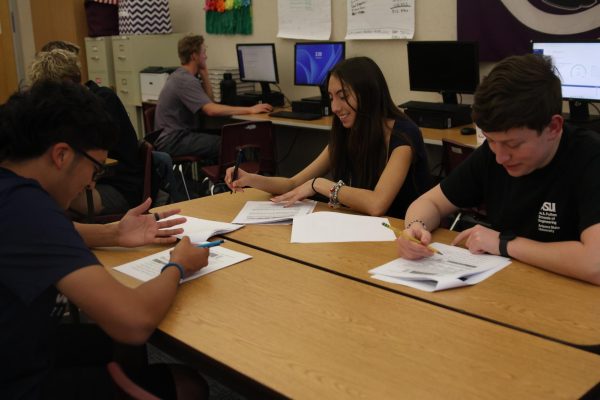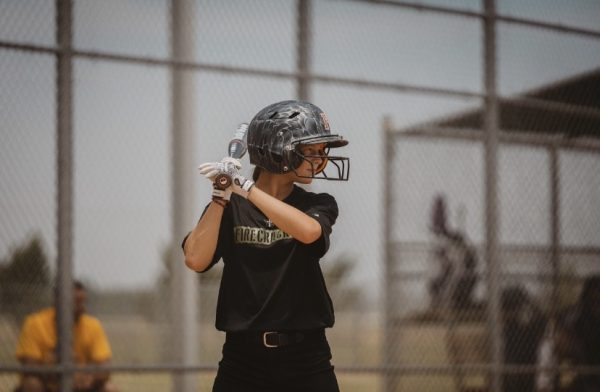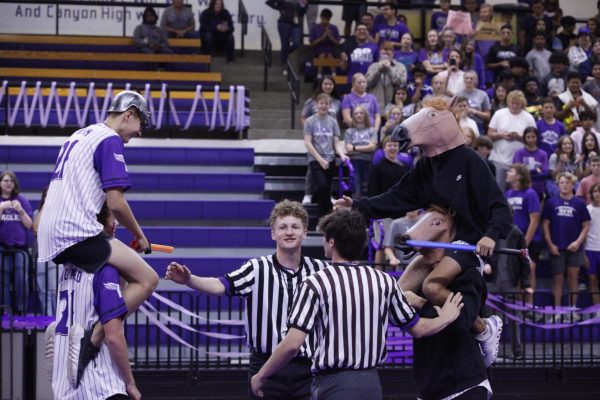Activity period rules designed to slow the flow, muzzle the mischief
Students walk up and down the main stairwell during activity period Jan. 26.
Students may have noticed a stricter enforcement of activity period expectations in recent weeks. The guidelines disallow any student from leaving second period class without a hall pass or before announcements are over. The reinforcement comes in response to the widespread abuse of activity period and is completely justified. However, students should hold themselves responsible for ensuring that such measures are not necessary by behaving responsibly in activity period.
The rules concerning activity period are very clearly set: students are not to wander the hallways but instead proceed directly to any classroom they need–not want–to visit. Otherwise, students may stay in their second period classrooms. These rules are clear and are continually restated in class meetings at the beginning of each semester, which makes students responsible for following them.
For students who are responsible enough to follow basic procedure, the crackdown only adds strain. Students who need to make up a test or quiz cannot ask to leave class and do so before announcements, costing valuable time. In addition, several student organizations do not have passes for their members yet, so activity period meetings may be difficult to organize.
However, the stricter activity period standards negatively impact teachers more than students. Teachers are now forced to keep careful track of students entering and leaving class, write emails to each other and write passes for trivialities such as bathroom visits. The time teachers spend performing these additional duties could be spent working with students or sponsoring clubs.
Some may say the difficulties posed by stricter enforcement indicate activity period should return to a more lax 25 minutes. This is incorrect. The school must protect students’ health and safety, even from themselves.
It falls to students to ensure the administration does not need to double down on rule enforcement. Students must remember they are responsible for their actions, but they must also realize the consequences of their actions affect more people than themselves.

Salutations, I am Jaren Tankersley. I am a senior, and I am very excited to spend my third and final year on the Eagle’s Tale staff as Co-Editor-in-Chief. I am vice president of the class of 2018, vice president of our NHS chapter and vice president...

I'm the adviser of the Canyon High newspaper and yearbook staffs, and I love starting my day with this talented staff. We hope you'll join us daily for new content. I'm a graduate of Texas A&M University where I studied Secondary Curriculum and Instruction...

